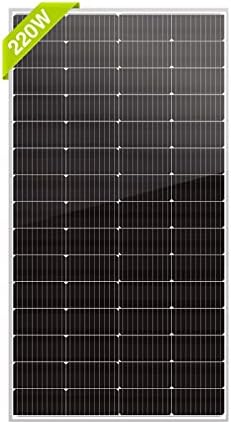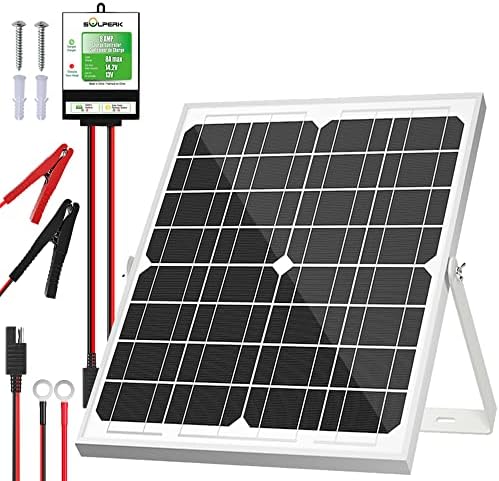## Solar Panels 101: Everything You Need to Know Before Going Solar
When I first settled into my cozy little cabin tucked away in the woods, I marveled at the serenity of my surroundings. But the thrill of living off the grid came with its challenges, chief among them: how to generate my own electricity. After some research and a fair share of trial and error, I dove headfirst into the world of solar panels. They quickly transformed my experience from precarious to empowering, illuminating not just my cabin but also my understanding of sustainable living. If you’re considering solar energy for your home, you’ve come to the right place! Let’s break down everything you need to know before going solar.
### The Basics of Solar Energy
At its core, solar energy harnesses the power of the sun’s rays to create electricity. Solar panels are made up of photovoltaic (PV) cells that convert sunlight directly into electricity. The beauty of solar energy lies in its abundance; the sun produces enough energy in one hour to power the entire globe for a year!
### Types of Solar Panels
Before making the switch, it’s essential to familiarize yourself with the different types of solar panels available in the market:
1. **Monocrystalline Panels**:
– **Efficiency**: Typically the most efficient and space-saving option, with efficiency ratings of 15% to 22%.
– **Cost**: Generally expensive but worth the investment in terms of longevity and performance.
– **Lifespan**: Can last 25 years or more.
2. **Polycrystalline Panels**:
– **Efficiency**: Slightly less efficient than monocrystalline, usually ranging from 13% to 16%.
– **Cost**: More affordable, making them a popular choice for budget-friendly solar installations.
– **Lifespan**: Generally lasts around 20-25 years.
3. **Thin-Film Panels**:
– **Efficiency**: The least efficient, with ratings between 10% and 13%.
– **Cost**: The lowest upfront cost, ideal for large installations where space isn’t an issue.
– **Lifespan**: Generally shorter, often around 10-15 years.
### Benefits of Going Solar
The allure of solar energy extends beyond just reducing your electricity bill. Here are several other compelling benefits:
– **Environmental Impact**: By harnessing a renewable energy source, you’ll significantly reduce your carbon footprint, contributing to a healthier planet.
– **Energy Independence**: Generate your own power and rely less on the grid. This can be especially beneficial in areas prone to outages.
– **Government Incentives**: Many states and federal programs offer incentives, tax credits, or rebates for solar installation, making it more affordable.
– **Increased Home Value**: Solar installations can enhance your property value, which may be beneficial if you ever decide to sell.
### Assessing Your Solar Needs
Before you can enjoy the benefits of solar energy, you need to determine how much solar power you’ll need. Here’s how to get started:
1. **Evaluate Your Energy Consumption**: Review your past utility bills to determine your average monthly energy usage in kilowatt-hours (kWh).
2. **Sunlight Exposure**: Assess the amount of sunlight your home receives throughout the year. If you have tall trees or nearby buildings that cast shade, you may need to take additional steps, like trimming trees or choosing a different installation site.
3. **Choosing the Right System**: Whether you intend to go completely off the grid or just supplement your existing power, this will influence system selection, size, and type of panels you’ll need.
### Installation Process
Installing solar panels is a significant step. Here’s an overview of the process:
1. **Site Assessment**: A professional will evaluate your property to determine how many panels you need and the best installation method.
2. **System Design**: The solar provider will design a system tailored to your energy needs and the layout of your home.
3. **Permits and Paperwork**: Depending on your location, you may require permits from local authorities. Your solar provider will typically assist you with this.
4. **Installation Day**: The installation can usually be completed within one day, although larger systems may take longer.
5. **Inspection and Connection**: After installation, a final inspection will ensure everything is up to code, followed by connecting your system to the grid.
### Pro Tips for Going Solar
1. **Research Local Incentives**: Check for state and federal tax credits to electrify your savings when installing solar panels.
2. **Read Reviews**: When selecting a solar provider, read customer reviews to ensure quality and reliability.
3. **Consider Battery Storage**: If you want to store excess energy for use during cloudy days or at night, consider adding battery storage to your system.
4. **Monitor Your System**: Many systems come with applications or dashboards that allow you to track energy production in real time. This can help you identify issues early.
5. **Plan for Maintenance**: While solar panels require minimal upkeep, regular cleaning and checking for shading can maximize their performance.
### Navigating the Cost of Solar
The initial investment can be daunting, but it’s crucial to understand the long-term benefits. Here’s a breakdown of typical costs involved:
– **Equipment Costs**: This includes panels, inverters, and mounting hardware.
– **Installation Fees**: Depending on the complexity of the installation, labor costs can vary.
– **Permitting Costs**: Local governments may charge for permits or inspections.
To get an accurate sense of your total costs, it’s wise to get quotes from multiple providers and ask about financing options.
### Final Thoughts
Transitioning to solar energy is an exciting journey filled with opportunities for environmental stewardship and personal empowerment. By understanding the ins and outs of solar panels and energy needs, you’ll be well-prepared to make an informed decision.
Whether you’re a nature lover, a DIY enthusiast, or just someone looking to save on energy bills, the sun is your new best friend. So why wait? Embrace the solar revolution and light up your world with clean, sustainable energy!
—
### Conclusion
Harnessing solar energy can transform your home and the way you think about energy consumption. Equipped with the knowledge from this article, you’re now poised to make an informed decision. Let the sun shine on your journey to clean energy!



